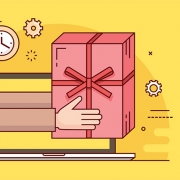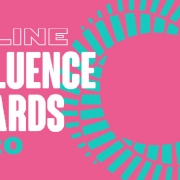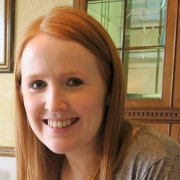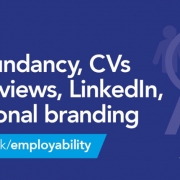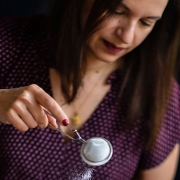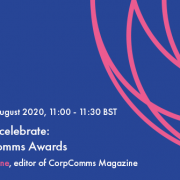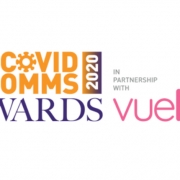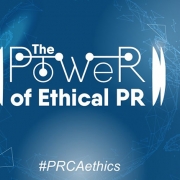‘Work-wise, nothing fazes me and I am known to bring calm to chaos and conflict’ – while 2020 is turning out to be a particularly tumultuous time for the PR industry, Sheena Thomson has the mettle to weather the storm. With leadership training in the Royal Navy, time consulting overseas in Thailand and the Middle East, and experience of stressful and sometimes life-threatening situations, crisis comms is just one part of the Conduit Associates founder’s particular set of skills.
Read on for Sheena’s advice on staying calm in a crisis, how well military skills can transfer to a career in communications and why working in PR is well worth sticking with.
Tell us a bit about your career so far and what led you to PR…
My career always seems to raise eyebrows as it has been pretty unconventional. After studying fashion, I went into retail and ended up as a production buyer for Laura Ashley. As much as I enjoyed it, I felt it wasn’t challenging enough, so joined the Royal Navy to get leadership training and follow a clear career path. Although I specialised in personnel selection, my last job before leaving was running the press office at the huge Royal Navy base at Faslane in Scotland. It is home to the strategic nuclear deterrent, so it was a busy job. It was a mix of issues and crisis management, community engagement and traditional media relations. It was a great start to my PR career, and I have stuck with PR since.
What helped you decided to start your own consultancy, and what were your initial aims with Conduit Associates?
I had established a small consultancy before in Thailand and enjoyed the independence this gave me. I was living in Thailand at the time it became politically unstable, leading up to the military coup in 2014, so decided to return to the UK. I had been overseas for nearly 12 years, including time in the Middle East, so when I came home, I found the job market had both changed considerably and it took time to see where my skills and experience fitted in to the market. I decided to return to my roots specialising in issues and crisis communications, setting up Conduit Associates. This also enables me to still support my clients overseas, as well as build my client base in the UK.
What skills from your military background transfer well to public relations?
Teamwork is essential in the military environment, and effectively leading or working with people is at the heart of any mission or task success. This has been the most directly transferrable skill. Understanding the true concept of strategy and tactics, both military disciplines that have transferred into the civilian space, are the other skills that have remained with me throughout my career. They have provided me with a natural instinct to think short, medium and long-term with any PR task or client brief.
My training from psychologists as a personnel selection officer was also useful. My job for five years was to interview people, listen, analyse the answers and evaluate. These listening and analysis skills have also remained with me throughout my career and transfer extremely well to public relations, in particular crisis communications.
How has lockdown changed the way you work?
Before lockdown, I worked from home two days a week, and spent the remainder in London in front of people or working remotely. So, for me, the biggest change is that I am, of course, now in front of people on screens. I have adapted pretty well, although part of my offering is soft skills training, and there are limits to what can be achieved online when you are developing individual skills, confidence and capability online in our respective home environments.
Do you think the PR industry can ever return to the way things were before the COVID-19 crisis?
I don’t think any industry or sector can completely return to how things were before the COVID-19 crisis. I think it is a watershed moment as we have all seen what is possible when we are compelled to adapt and change. In normal times, change and transformation of any kind takes effort and planning, but this has been blown out of the water as we have pivoted to pretty much whatever we need to do to keep productive and present. We have also seen such monumental change in all sectors, many of which simply won’t return to how they were before e.g. retail, aviation, etc. The PR industry will be no different. We are already seeing new agencies and restructuring of in-house teams to reflect PR and communication needs going forward as the economy starts stepping towards recovery.
Having worked in hostile environments during your career, how do you deal with work-related stress now?
My mantra is to ‘take a moment’ if I feel stressed, and walk away from the task – or whatever the trigger is – to recalibrate my thinking and put things into perspective. It doesn’t happen often, though; I have been in so many stressful situations dealing with both dangerous and sometimes life-threatening situations during my time in very busy press offices in my post-conflict days. These days, my stress threshold is very high and rarely triggered. This is why crisis communications is such a great fit for me. Work-wise, nothing fazes me and I am known to bring calm to chaos and conflict.
Which particular sectors among your client base do you see making the quickest recovery post-pandemic?
I think we are already seeing the shoots of recovery through consumer and healthcare demands. We have all been locked up and had our freedom of movement restricted, so the leisure, fitness and travel industry will continue to adapt to the demand, despite the obvious public health challenges. People want to get out and enjoy themselves again!
The UK tourism sector in particular will recover quickly. I also think we will see a return, in part, to manufacturing of goods of national strategic importance that had moved to offshore production. A good example is PPE. We simply couldn’t get enough of it when we needed it most and were completely dependent on offshore supplies, with luxury brands like Burberry manufacturing scrubs in response to desperate hospital pleas. The stockpiling strategy failed too, compounding the issue. We may pay more for UK manufactured goods, but we will have flexibility and access to them when we need them. There will also be the added benefit of transparent governance in the supply chain and we won’t be flying goods around the world.
With so many journalists being furloughed, has contact with the media been harder over the last few months?
I have not experienced issues with this – I have always found news desks helpful in signposting and directing me to who I need to speak to when routines are disrupted, for whatever reason. In general though, I think it is quite worrying how journalists have been furloughed – they are absolutely critical to society as they are there to hold people to account on behalf of the public. In fact, I blogged about it a few weeks ago. We need journalists and, along with all other severely impacted sectors, I hope journalism recovers quickly.
The PR industry has a diversity problem – what can agencies do to create diverse teams and promote people from a variety of backgrounds into higher roles?
Talent is talent, and I am a firm believer that everyone deserves a chance to let that talent shine. Racism is a blight on society – I still struggle to understand how people can discriminate on the basis of skin colour. Skin is an organ which we all have, just like the rest of our vital organs, so why some people think the colour of an organ makes us different, to me, just doesn’t make rational sense. Our brains and hearts underneath the skin are the same and I wish that mindset was more widespread as our brains and hearts is what drives what we bring to society as individuals, among many other things.
Back to the issue, I believe an integrated approach works best, based on my experience working with diversity and other cultures overseas. Provide talent with the opportunities that will allow their interests and skills to shine vs opportunities that tick boxes. Be courageous and bold, and where systemic issues and biases linger, sort it out. But most of all, take action to rectify the problem, as diversity is part of our society and it needs to be the case in the PR industry also to properly serve the needs of our society and our clients.
What have you enjoyed most about your career and what advice would you give to those considering working in the PR industry?
There are many things to draw upon, but I think the reason I have stuck with PR for so long is that it always gives me the opportunity to be constantly curious, be a great listener, be analytical and think through problems, strengths and opportunities. I also enjoy developing and applying creative and relevant ideas and recommendations, but most of all, using my seemingly natural people skills. I think this is what has helped define my success, along with seizing opportunities as they present themselves. Of all these skills, being a people person is the most important for a successful communicator, regardless of what discipline you choose in PR. My advice – if you have any or all of these skills, PR is a good fit and can be immensely interesting and rewarding when you seize opportunity. Even in these challenging times, opportunity is already starting to re-emerge.




